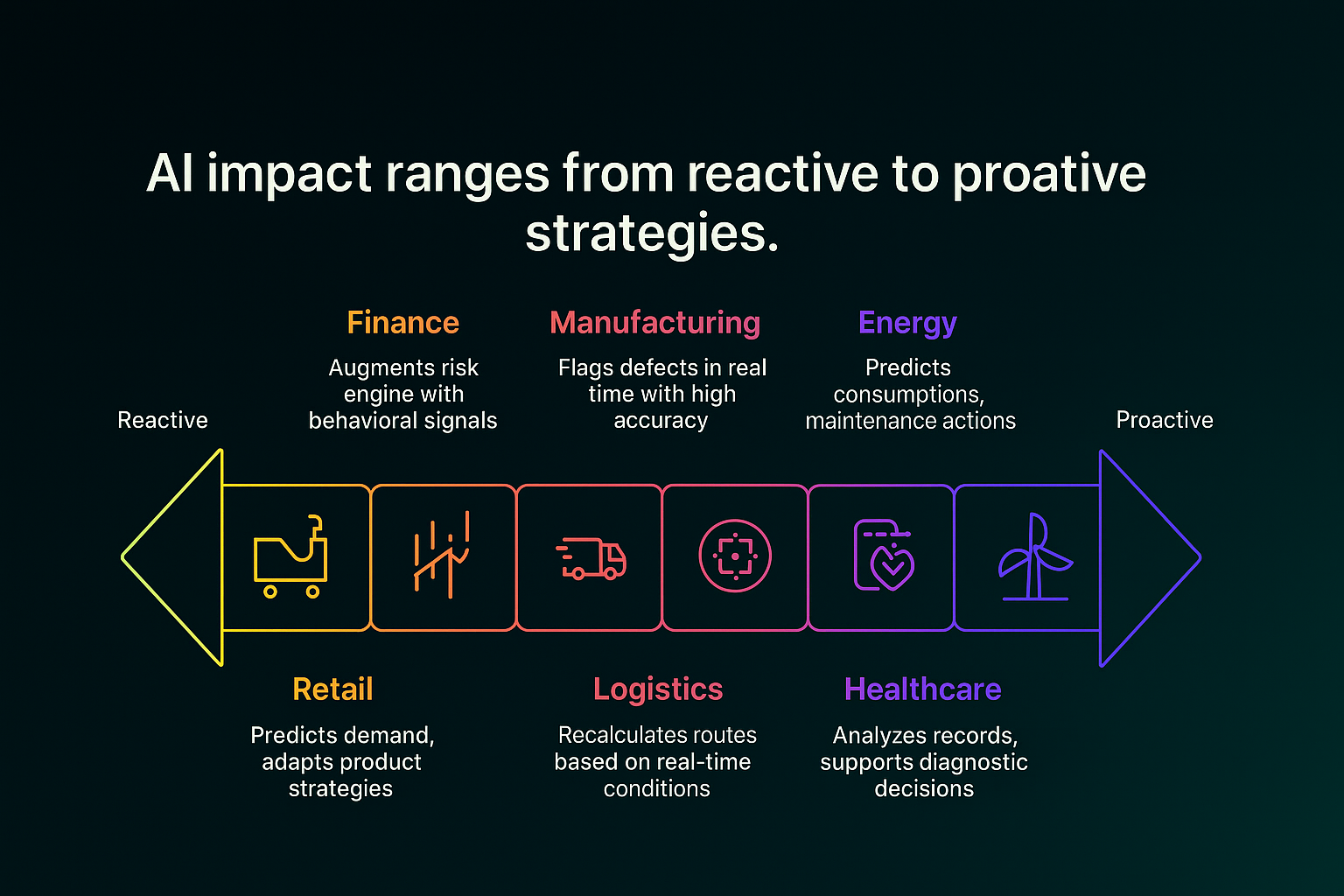Join our newsletter



What was once a future investment is now the foundation of operational growth. Industry leaders are already embedding it deep into their decision-making, product pipelines, and customer strategies. Here are six real-world transformations we’re watching closely and how you can start leveraging similar moves across your organization.


Retail giants are combining predictive analytics with generative AI to create product strategies that adapt in real time. Models integrate social trends, weather, behavioral patterns, and regional logistics to optimize what’s produced, where, and when.
If your supply chain is already data-driven, connect those insights with a scenario generation model. Focus on identifying external variables that influence your sales cycles and let the AI model the rest.
Production lines are evolving from reactive to proactive. AI-powered vision systems now flag defects in real time with accuracy levels that surpass manual inspection, often reducing error margins below 2%.
If you already capture video or sensor data on the floor, train a lightweight vision model with actual production defects. Deploy in one line, measure precision, and expand from there.
Hospitals are integrating fine-tuned large language models (LLMs) to analyze patient records, identify inconsistencies, and support complex diagnostic decisions, cutting time-to-decision without sacrificing accuracy.
If your team works with structured and unstructured medical data, consider an internal LLM that syncs with your existing systems (EHRs). Start with a narrow use case, like triage support or anomaly detection.
Last-mile delivery players are boosting SLA performance using reinforcement learning models that recalculate optimal routes based on real-time traffic, weather, cancellations, and package priority.
Map your current delivery routes and SLAs. Then, introduce a model trained on your logistics KPIs to simulate routing improvements. Measure, tune, and deploy progressively.
Energy companies are deploying AI-powered digital twins to monitor systems, predict consumption spikes, and trigger maintenance actions before issues arise, preventing downtime and improving grid efficiency.
Start with a predictive model trained on historical maintenance and consumption data. Build toward a full twin once you validate the impact on reliability and operational costs.
Digital banks and fintechs are redefining credit risk evaluation by layering contextual data, such as device type, navigation patterns, and behavioral signals, over traditional credit scores.
Augment your risk engine with behavioral signals first. Use lightweight ML models to test lift in predictive power. Once validated, integrate with your decision-making workflows.
AI wins are rarely about massive, one-shot deployments. The most successful transformations start small, validate fast, and scale what works. These six cases show how AI isn’t replacing industries. It’s rebuilding them from the inside out.
Ready to explore what AI could unlock in your sector? Let’s design a modular, high-impact roadmap that scales with your ambition.
Let’s partner up! Write us.